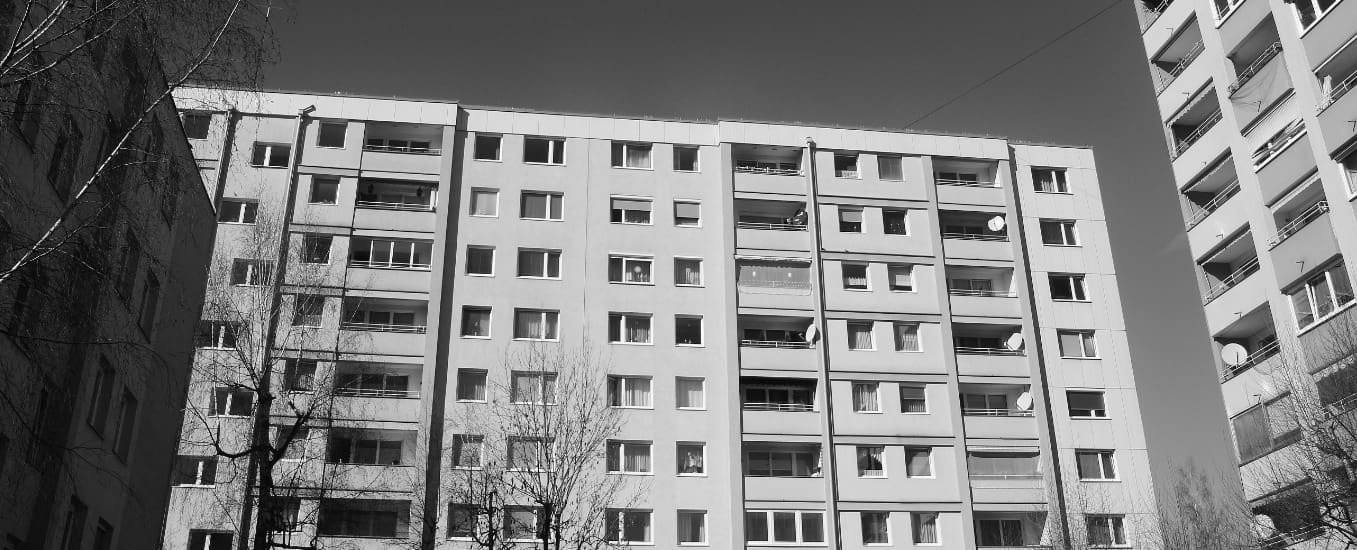Delivering more social value from social housing
Last week, we took a look at the evolution of social value in the wider context of infrastructure. How a focus on whole-of-life value, improved contract management, and Modern Methods of Construction are all contributing to the UK’s goal to build back stronger and more socially valuable than ever before.
Today, we’re going to dig a bit deeper into one of the most notable intersections of social value and infrastructure: social housing.
One of the ultimate sources of social value
Social housing’s overarching goal is to create more accessible, affordable housing for those most in need. To secure stable tenancies for those who might otherwise struggle to keep a roof over their head. As such, it’s one of the ultimate examples of social impact, adding value to real people’s lives on a large scale and transforming the resilience of our communities.
Social housing proves essential for both wider economic growth and social wellbeing. It directly targets pressing issues such as homelessness and poverty, social inequalities, and environmental sustainability, to name a few.
Consider all the knock-on effects stable housing has for individual people and wider communities. If we consider the UN’s SDGs, goals 1, 2, 3, 4, 6, 7, 8, 10, 11, 12, 13, and 16 – almost three quarters of them – are all, directly or indirectly, impacted by social housing in some way.
Striving towards more eco-friendly housing solutions contributes towards affordable and clean energy, sustainable cities and communities, responsible consumption and production, and climate action. Getting a family into a secure and stable home will reduce poverty, hunger, promote better health and wellbeing, boost employment and education opportunities, and reduce inequalities.
In short, social housing represents a massive opportunity for social value. But there are constraints holding us back from unlocking as much value as possible.
The housing crisis
This one doesn’t need much explanation. Social housing is a great opportunity to generate value, minimise nationwide inequalities, and boost our economic resilience. But there’s not nearly enough supply and resources to support the level of progress we need to see.
Since the 1980s, development of social housing has severely fallen. In 1980 alone, almost 100,000 social homes were built. In 2018/19, only 6,287 were built, despite the 1.1 million people on the waiting list.
One of the biggest barriers to unlocking more social value in housing is, well, the lack of housing.
Creating homes that are fit for purpose
Social housing providers – such as housing associations – are stuck between a rock and a hard place when it comes to keeping up with housing demand while also ensuring the homes provided are, and remain, safe and fit for purpose. And all of this is while also struggling with limited funding, support, and minimal resources.
There are important factors such as accessibility, inclusivity, and tailoring social homes towards different demographics. For example, creating housing options suitable for the older generations who are less mobile than say, a young family. Which are all imperative if associations are to uphold the ‘accessible’ angle of social housing.
But then there’s also the matter of environmental impact to contend with. This represents an aspect of social value in and of itself. To build more resilient communities and address the ever-pressing climate crisis and associated targets, housing associations must also consider how eco-friendly or not their housing stock is.
This means making sure homes are in line with the net-zero by 2050 targets and attaining EPC ratings of C on all social housing stock by 2035. This is difficult enough with new builds, but there’s also all the older social housing stock. And this means retrofitting poor quality housing to meet increasing modern demands. This can prove expensive and puts added strain on already stretched housing associations.
Quality versus cost
This brings us to the matter of quality versus cost. The real underbelly of why social housing is struggling to add as much value to our people, communities, economy, and planet as we’d all like it to. There simply isn’t the funding to keep up with all the demand, with more going to low-cost homeownership and “affordable” rented housing.
We need to rethink our view of ‘cost-effective’. In one study, more than 80% of people polled in the housing sector said the sector was too focused on financial value, not on social value.
The more complex and expensive projects, such as retrofitting old housing stock, might not prove as financially valuable as producing more lower-quality homes in the short-term, but it might positively impact investment decisions and potentially offer up more resources for housing associations to work with long-term.
We touched on Modern Methods of Construction last week, and this is another solution to consider. Able to tackle skills and productivity gaps, MMCs provide an opportunity for us to build social homes that are better quality, all while generating more social value to other areas in the development process. Research suggests MMCs offer a 30% improvement to the speed of construction of new homes, a 25% reduction in costs, and improve quality and energy efficiency. All positive news for those organisations looking to do more with less.
To summarise: social housing holds immense potential to boost social value, reduce inequality, and strengthen economic growth across the UK. But there’s still a long way to go before we can expect to see the long-term, widespread results needed.
Next week, we’re going to look at the top reasons housing associations will benefit from a more refined social value strategy.
The Impact platform makes for effortless measurement and evaluation of your social impact data. With real-time dashboards, data capture, and straightforward report generation, we help organisations – such as housing associations – clearly visualise and demonstrate their impact to investors. If you want to find out more, or want advice on implementing a CSR strategy, get in touch on 0161 532 4752.

